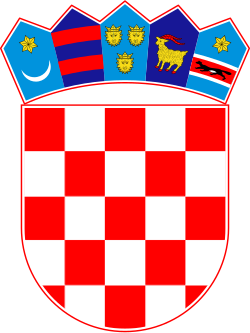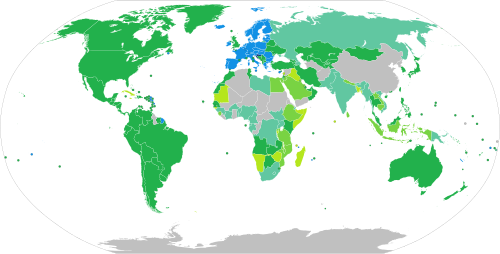| Croatian Citizenship Act | |
|---|---|
 | |
| Parliament of Croatia | |
| |
| Enacted by | Government of Croatia |
| Status: Current legislation | |
The Croatian nationality law dates back from June 26, 1991, with amendments on May 8, 1992, October 28, 2011, and January 1, 2020, and an interpretation of the Constitutional Court in 1993. [1] [2] [3] It is based upon the Constitution of Croatia (Chapter II, articles 9 and 10). It is mainly based on jus sanguinis.
